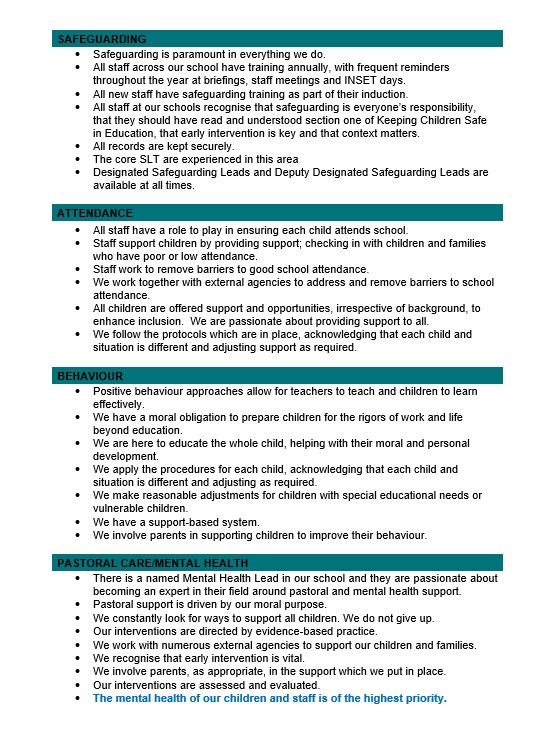Supporting Mental Health and Wellbeing
What is Mental Health?

There are a range of answers to this question and some of them can be harmful. It is important that we recognise that our own mental health is constantly 'shifting'. This means that at different times in our lives we are able to manage challenges better than at other times.
Mental health is as important to a child's safety and wellbeing as their physical health. It can impact on all aspects of their life, including their educational attainment, relationships and physical wellbeing. Mental health can also change over time, to varying degrees of seriousness, and for different reasons.
NSPCC
When we are in a positive place with our mental health, we are able to;
- make the most of our potential
- cope with life's challenges
- play a 'full-part' in our interactions with family and friends, in our workplace and community
At St Nics, we are passionate about making a difference to the lives of young people. We believe in teamwork; working with each other, with teachers and colleagues across the school, with the wider school community and, most importantly, with the young people in our school. We act with determination. Whatever issues our children, their families, the school, our team or the community face, we always support, react and pull together.
We are committed to making a difference; we are not passive players in children's lives but active participants who can, and do, make a real difference.
Our moral purpose can therefore be summarised below -
- Teamwork.
- Determination.
- Commitment.
What Inclusion and effective mental health interventions means to us
- The child stays at the centre of every conversation.
- We prioritise those who need our help most, but we intervene with all.
- When children are in our school, we can support and educate them – attendance matters.
- Children learn best when there are clear routines, rules and simple consequences.
- Children will feel listened to, developing their self-esteem, independence and confidence.
- Staff teach best when there are clear routines, rules and simple consequences.
- We use evidence-based practice for all our interventions.
Expectations of each other
- Communication is key.
- Read and understand section one of 'Keeping Children Safe in Education'.
- Know and understand our behaviour, attendance and safeguarding policies and protocols.
- Attend duties to support the wider school community.
- Attend meetings prepared and on time.
- Ensure pastoral support is evidenced and recorded on internal systems.
- Speak to children, staff and each other with courtesy, respect and understanding.


